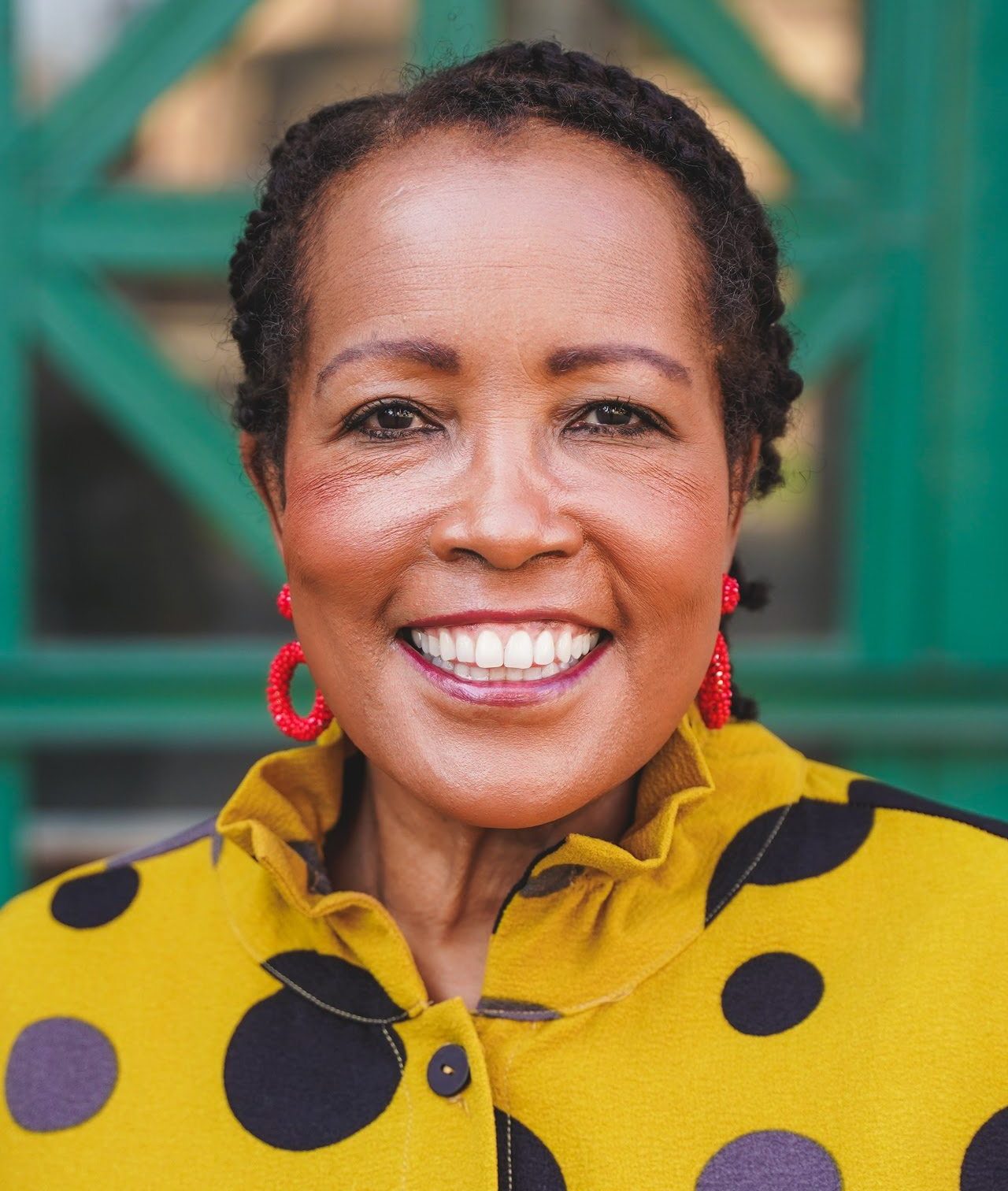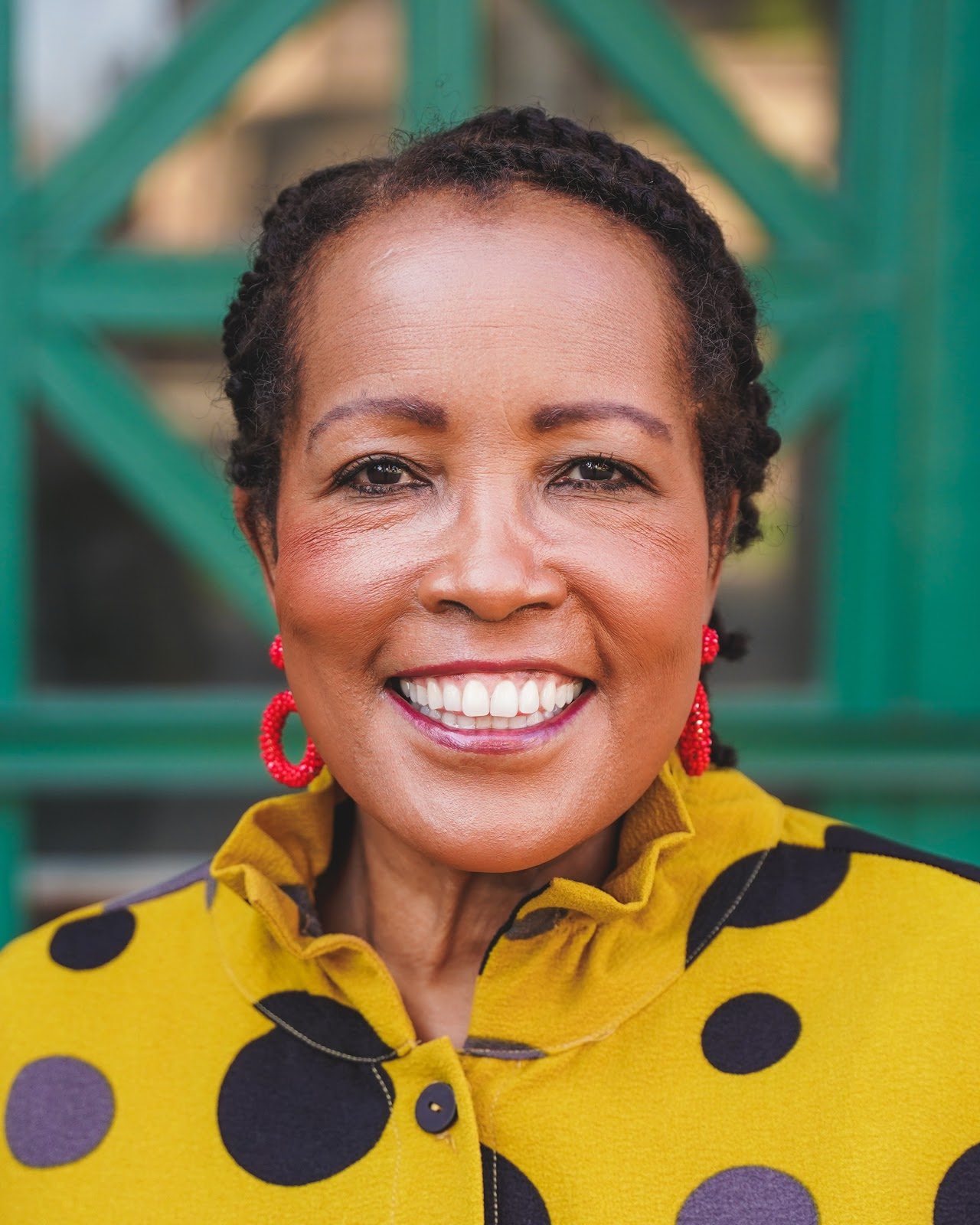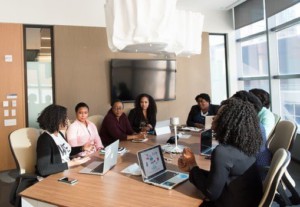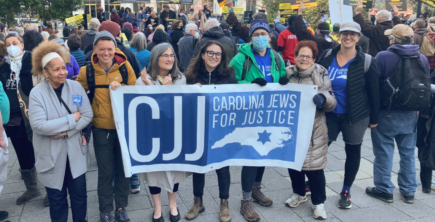
Healthy Individuals & Communities


As Tides’ new chief people officer, Gwen Tillman is charged with leading all aspects of Tides’ human resources, including designing and implementing people strategies and solutions for the organization and its key partners to strengthen capacity and deliver on their missions. How does her lived experience as a Black female professional, coming from the high-tech industry, come into play as she strives to attract Black talent? What is her advice for companies seeking to do the same? We speak with her about both as she shares her lived experiences and unique perspectives on how we can—and must—do better to nurture Black professionals in the workplace.
Tides has a Black female CEO and a racially diverse leadership team, of which you are a member. How do you think Tides has been able to attract and nurture Black talent in a way that other organizations may learn from?
I want to start with my journey. I took a sabbatical and used that time off to just really step back and figure things out. I was grappling with the harsh reality that I was burned out–working in technology for as long as I had, that was not uncommon. Yes, I was able to be a part of some amazing work and I am proud of many of my contributions. But for so much of that journey I kept hearing the line: “We are committed to diversity, equity, and inclusion.” But time and time again, actions weren’t consistent with that messaging. As a Black woman, I was one of the few, not the many. This is what drew me to Tides—and this is part of attracting Black talent. We have a Black female CEO, who I am inspired by. When you look at the board of directors, you have sexuality diversity, racial diversity, industry diversity, and gender diversity. It is not a situation where Tides is saying they are committed to justice, equity, and inclusion, but all you see are white people. If you’re saying you’re committed to diversity, equity, and inclusion, then your actions as an organization must match that commitment. That is how you attract and nurture Black talent, because they know they are coming into an open and inclusive space where there is true potential to thrive and be heard.

Recent events have left many organizations struggling to have tough discussions on racism. © Christina @ wocintechchat.com
Recent events—from the pandemic, to the national reckoning on racial and social justice, to the racially motivated attacks on the U.S. Capitol—have left many companies and organizations rethinking their corporate cultures and struggling to have tough discussions on racism. How do you see this time in history, in terms of providing Black employees support and the space to lead those conversations?
When the attacks happened in the U.S. Capitol, I remember texting Janiece, our CEO, and asking “How is everyone at Tides?” because I wasn’t starting my role until the following week. She said there was an all-staff meeting on the day of the attacks. They pulled everyone together to just talk, express anger, pain, frustration, sadness, then they had another meeting the next day. In any other place, this would be bold and audacious. I don’t know how many other companies display that kind of openness. What Tides did was empower its employees to feel safe and heard. These types of consistent actions lead to making an impact and shifting things internally within an organization. It moves beyond Black employees just surviving, to actually being able to thrive and be leaders in the organization, and being able to support and enable an organization to truly make some authentic shifts in the realm of justice, equity, diversity, and inclusion. Those decisions cannot be made by people who aren’t going through that shared journey—meaning it’s because we have diverse leadership that those types of actions are taken, knowing that we all need a place to be heard. Employers must have the willingness to be honest about their own fears of those conversations. They need to ask themselves, “What are we going to be able to own? Are we willing to be publicly held accountable when we say we’re committed to diversity, equity, and inclusion?” It starts with people being truly heard—not listened to but being heard.

“I built people up who wanted to play and win as a team, not just as individuals,” says Gwen Tillman. “They ended up being some of the biggest contributors to my growth.” © Christina @ wocintechchat.com
Would you say you have succeeded in your career because you were nurtured along the way?
Success looks differently for each person. If you look at how I first started my career, and where I am now, you’ll see some incredible growth—whether it’s financial, accountability, impact, job scope, titles—then yes, I’ve been successful. Now if you look at how I’ve had to engage throughout my career, it has been exhausting. You’ve got to watch how you say things; you know people are looking at you; you’re Black and a woman. You need to watch your tonality, your language around things. It would have been easy to crumble under all of that weight. That’s where nurturing saved me. I have found leaders who coached and mentored me along the way. I built people up who wanted to play and win as a team, not just as individuals. They ended up being some of the biggest contributors to my growth. I am so grateful to be where I am right now in my career. Finding safe pockets where I could have really honest conversations with leaders, where I could say, “You know, I just had a conversation where I got completely shut down.” And they’d say, “You need to stand up for yourself,” reminding me that I was incredibly good at what I do, and if that project was to be successful, “They need to hear your voice.” That is the gift of having someone who really stands for your greatness. Without those pushes along the way in my journey, I am not sure where I would be right now.
What is your advice to human resources professionals when it comes to identifying and supporting Black professionals?
“The responsibility of identifying and nurturing Black professionals does not begin and end with HR.”
It requires collaboration and communication. It’s not like old-school HR where you create a program or process in the back room, and you roll it out and think that’s the best way to identify and support Black professionals. This cookie-cutter approach doesn’t work. Growth and success are not the same for everyone. You have to think about how to create a solid foundation that they can step on to, and bring their own experiences that are most important to them and their journey. This also means having some tough conversations with your leadership team. The responsibility of identifying and nurturing Black professionals does not begin and end with HR. Your leadership team must be accountable. Leaders’ actions speak volumes about the culture of a company and what it truly values. Engage your senior leaders in sponsoring or mentoring the talented Black professionals you have brought onboard. As a human resources leader, you have to fight for a commitment of time, resources, and accountability to ensure actions are being taken that are consistent with the commitments made. And then you need to measure the progress over time. This means going back to the conversation as many times as it takes. Leadership has to be an integral part of the business growth of people, not just fueled by an HR agenda that is off to the side.

“It’s more about having a shared kinship with other folks, those you can speak the truth with.” © heylagostechie
What is your advice to Black professionals in terms of seeking the resources they need to achieve their goals in the workplace?
You are not alone. There are a lot of organizations where you can connect with people going through the same things. Black Enterprise, for example, hosts a series of summits during the year for professionals, and the Executive Leadership Council is hosting a “2021 Power of Women at Work” conference for early to mid-career Black professionals. National Urban League, 100 Black Men, and the National Coalition of 100 Black Women are also great resources. And then there are also people who don’t look like you, who, if given the opportunity, would absolutely want to support and help your career. Many of my mentors were not Black. Their willingness to share their access to resources with you—whether they sponsor you or are able to get you into the right conversations—can help immeasurably. It’s more about having a shared kinship with other folks, those you can speak the truth with. In your organization, there may not be many Black people, but more of a mosaic of cultures, where you’re coming together and sharing experiences and insights. You have to be resourceful in seeking your network (work your LinkedIn, do some volunteer work) and you have to be willing to be a valuable resource for someone else.

Healthy Individuals & Communities

Our Community

Philanthropy

Read the stories and hear the voices of social change leaders fighting for justice.